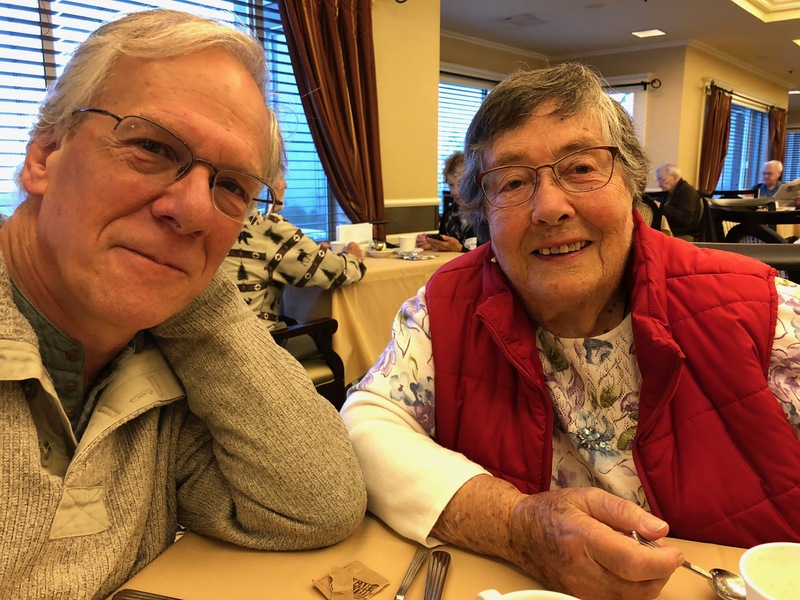Uncovering the Rescuer
Rick began his search for answers in 1994. He felt in order to understand his own life, he needed to understand what his mother had gone through. Richard is named for Hester's father Benedictus; his name means a blessing or a benediction. Richard's Hebrew name given to him when he began Hebrew school was Baruch, which also means blessed. It was not until years later that he discovered his English name is also from his grandfather. His parents did not wish to call him Ben or Benedict, but a nickname of his grandfather's was Dic, and Dick is often a nickname for Richard, so he became Richard.
After the release of the movie Schindler's List in 1993, Rick's desire to uncover his mother's rescuer grew. He had always been interested in the idea of the rescuer and the hope they provided in the idea of the goodness that individuals could show in the face of evil. His mother had kept a small notebook near the end of her time with the family who rescued her and he hoped that it might provide some clues as to who it was that had saved his mother. At first, the book seemed to be a dead end - the man only being referred to as 'Sir' or 'the man of the house', but unknown at the time, that book did in fact hold the answer to Rick's questions.
On Friday April 8, 1994, two days before the remembrance of the victims of the Holocaust on Yom HaShoah, Rick received a message through a computer mailing list he was a part of called Holocaus-1. This mailing list was for survivors, academics, children of survivors or just interested individuals to talk about, critique and discuss the events surrounding the Holocaust. The message talked about the experience of rescuers in relation to the final scene in Schindler's List, and how the author's father, despite managing to save 70 children, felt he had not done enough. Rick read the letter at the Yom HaShoah service and prefaced it with comments about the need to remember and honour the rescuers.
Shortly thereafter, Rick began to take his search more seriously. His mother rarely spoke of her teenage years, and when she did, she had trouble sleeping at night. When Rick asked about the family who hid her, she could not remember their name but thought it was something like Westerink. She did not remember the adults' names, but knew their three children: Loesje, Peter-Jan and Ruth. She also remembered that the father was a church organist in Haarlem, and it was a church where she met him for the first time.
An associate of Rick's just happened to also be a church organist, and was a member of a different online mailing list about Pipe Organs. On April 13, Rick contacted his associate, David, asking if he could post a message to the group for him about his search. David posted the message on the 14th and by the 15th Rick received his first reply from Holland. A man named Jos Aarts had a list of Dutch telephone numbers and had found two Westerinks near Haarlem. While Rick was considering how best to contact these names he'd been given, he received another message from the Netherlands. Louw Talstra wrote that the man Rick could be looking for was Mr. Paul Christiaan van Westering, who was a very well-known professional organist from the 1940s-1970s. Louw also noted that Mr. van Westering had died three years earlier at the age of 79, but that he had lived in the "west", likely in Haarlem. Despite the name not quite being what his mother had remembered, Rick had a good feeling about this message. That same night he received a phone call from his mother, she had remembered the name of the man who hid her - Paul - confirming they had found the right man.
This was again confirmed by the diary Hester had kept. Rick had translated it earlier that spring and two passages from March 29th and 30th of 1945 reveal that on the 29th Hester had gone to a concert that was sung by Louman while P. Chr. van Westering played the piano. Her entry from the next day says that "This afternoon, Sir [the man of the house] had a concert at Begynhof Chapel. The same program as the day before." Indicating that the 'Sir' was referring to either Louman or van Westering, this had been overlooked previously but confirmed without a doubt that van Westering was the man who hid Hester.
